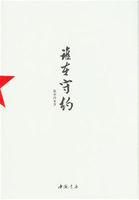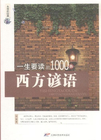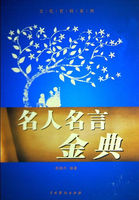So recognized was the fact that even ordinary changes of condition, social and domestic, were put aside until AFTER steamer day. "I'll see what I can do after next steamer day" was the common cautious or hopeful formula. It was the "Saturday night" of many a wage-earner--and to him a night of festivity. The thoroughfares were animated and crowded; the saloons and theatres full. I can recall myself at such times wandering along the City Front, as the business part of San Francisco was then known. Here the lights were burning all night, the first streaks of dawn finding the merchants still at their counting-house desks. I remember the dim lines of warehouses lining the insecure wharves of rotten piles, half filled in--that had ceased to be wharves, but had not yet become streets,--their treacherous yawning depths, with the uncertain gleam of tarlike mud below, at times still vocal with the lap and gurgle of the tide. I remember the weird stories of disappearing men found afterward imbedded in the ooze in which they had fallen and gasped their life away. I remember the two or three ships, still left standing where they were beached a year or two before, built in between warehouses, their bows projecting into the roadway. There was the dignity of the sea and its boundless freedom in their beautiful curves, which the abutting houses could not destroy, and even something of the sea's loneliness in the far-spaced ports and cabin windows lit up by the lamps of the prosaic landsmen who plied their trades behind them. One of these ships, transformed into a hotel, retained its name, the Niantic, and part of its characteristic interior unchanged. I remember these ships' old tenants--the rats--who had increased and multiplied to such an extent that at night they fearlessly crossed the wayfarer's path at every turn, and even invaded the gilded saloons of Montgomery Street. In the Niantic their pit-a-pat was met on every staircase, and it was said that sometimes in an excess of sociability they accompanied the traveler to his room. In the early "cloth-and-papered" houses--so called because the ceilings were not plastered, but simply covered by stretched and whitewashed cloth--their scamperings were plainly indicated in zigzag movements of the sagging cloth, or they became actually visible by finally dropping through the holes they had worn in it! I remember the house whose foundations were made of boxes of plug tobacco--part of a jettisoned cargo--used instead of more expensive lumber; and the adjacent warehouse where the trunks of the early and forgotten "forty-niners" were stored, and--never claimed by their dead or missing owners--were finally sold at auction. I remember the strong breath of the sea over all, and the constant onset of the trade winds which helped to disinfect the deposit of dirt and grime, decay and wreckage, which were stirred up in the later evolutions of the city.
Or I recall, with the same sense of youthful satisfaction and unabated wonder, my wanderings through the Spanish Quarter, where three centuries of quaint customs, speech, and dress were still preserved; where the proverbs of Sancho Panza were still spoken in the language of Cervantes, and the high-flown illusions of the La Manchian knight still a part of the Spanish Californian hidalgo's dream. I recall the more modern "Greaser," or Mexican--his index finger steeped in cigarette stains; his velvet jacket and his crimson sash; the many-flounced skirt and lace manta of his women, and their caressing intonations--the one musical utterance of the whole hard-voiced city. I suppose I had a boy's digestion and bluntness of taste in those days, for the combined odor of tobacco, burned paper, and garlic, which marked that melodious breath, did not affect me.
Perhaps from my Puritan training I experienced a more fearful joy in the gambling saloons. They were the largest and most comfortable, even as they were the most expensively decorated rooms in San Francisco. Here again the gravity and decorum which I have already alluded to were present at that earlier period--though perhaps from concentration of another kind. People staked and lost their last dollar with a calm solemnity and a resignation that was almost Christian. The oaths, exclamations, and feverish interruptions which often characterized more dignified assemblies were absent here. There was no room for the lesser vices; there was little or no drunkenness; the gaudily dressed and painted women who presided over the wheels of fortune or performed on the harp and piano attracted no attention from those ascetic players. The man who had won ten thousand dollars and the man who had lost everything rose from the table with equal silence and imperturbability. I never witnessed any tragic sequel to those losses; I never heard of any suicide on account of them. Neither can I recall any quarrel or murder directly attributable to this kind of gambling. It must be remembered that these public games were chiefly rouge et noir, monte, faro, or roulette, in which the antagonist was Fate, Chance, Method, or the impersonal "bank," which was supposed to represent them all; there was no individual opposition or rivalry; nobody challenged the decision of the "croupier," or dealer.
I remember a conversation at the door of one saloon which was as characteristic for its brevity as it was a type of the prevailing stoicism. "Hello!" said a departing miner, as he recognized a brother miner coming in, "when did you come down?" "This morning," was the reply. "Made a strike on the bar?" suggested the first speaker. "You bet!" said the other, and passed in. I chanced an hour later to be at the same place as they met again--their relative positions changed. "Hello! Whar now?" said the incomer.
"Back to the bar." "Cleaned out?" "You bet!" Not a word more explained a common situation.
My first youthful experience at those tables was an accidental one.















